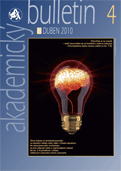On May 29-30, a conference entitled "The Protest Movements in the Contemporary Middle East" took place at the Academy of Sciences. The conference was organized under the auspices of Oriental Institute, Czech Academy of Sciences, and Centre français de recherche en sciences sociales (CEFRES) in Prague, with the kind support of Groupe de Recherches et d'Etudes sur la Méditerranée et le Moyen-Orient (GREMMO, Lyon) and Cercle des Chercheurs sur le Moyen-Orient (CCMO).
Since 2009, the protest movements have spread like wildfire throughout the regions of the
Middle East and North Africa. On a closer look, the protests were far from uniform, both in terms
of their origins as well as their objectives. Some were provoked by electoral fraud, others by
growing social discontent. Although factors such as corruption and inept governmental responses to
the needs of the time featured everywhere, civic rights and political freedoms were at the top of
the demonstrators’ agenda in some places, while they had already become the norm elsewhere.
Furthermore, the masses turned out on the streets in places as culturally and historically
diverse as Iran (2009), the Arab countries (2011), Israel
(2011) and Turkey (2013). Indeed, apart from sharing the same geographical location, the very
centers of protest, such as Cairo, Istanbul, Tehran and Tel Aviv, do not have that much in common,
ethnically, socially or politically.
Some issues are common, however, such as the calling for a renewal of the relationship between
the state and its citizens, the issues raised by the hectic urbanization of the previous decades,
the interface between the religious and secular worlds, structural challenges within these
societies, and, above all, the fallout from the 2008 economic crisis and the subsequent renewed
centrality of social conflicts. Even so, these commonly shared issues had a variety of different
impacts on Middle Eastern societies, due to the wide diversity of contexts. Keeping this diversity
in mind, the conference aims to bring together political scientists, historians, geographers,
sociologists, anthropologists and other academics who have specialized in studying relevant
countries/societies.
Instead of trying to bridge the unbridgeable via recourse to abstract theoretical
constructions, the conference aimed at multi-level comparison, based on a respect for the
individuality of particular cases.
Programme of the conference in English and French can be found at:
The list of participants and their profiles is here:
2 Jun 2014






